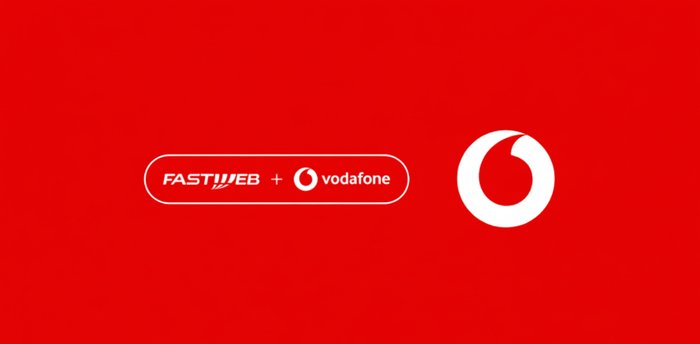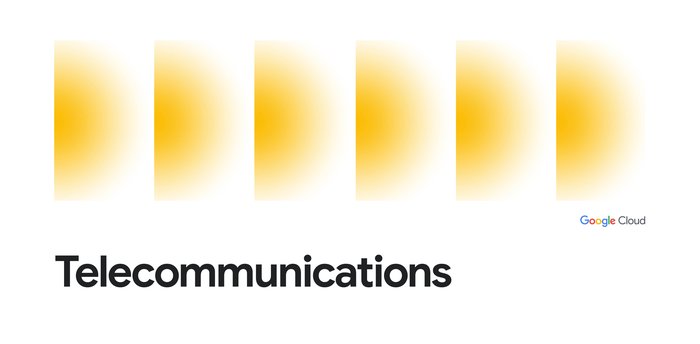MWC’24: Unlocking the AI-enabled Telco with Google Cloud
Ankur Jain
Vice President, Engineering, Google Distributed Cloud
When meeting with Communications Service Providers (CSPs) around the world, there is one clear theme: artificial intelligence (AI) is changing the game, unlocking significant value across the CSP value chain, and changing how CSPs and their customers interact with technology.
MWC’24 is no exception, and we are thrilled to be back in Barcelona this week as the wider industry ecosystem comes together to reimagine the future of the industry, with AI-driven innovation at its core.
It’s been an exciting 12 months since last year's event — we have been collaborating with CSP customers and partners around the world to digitally transform their business with data and AI. For example:
- Accenture, the leading professional services firm, and Google Cloud committed to establishing a Joint Generative AI Center of Excellence, with access to over 130 models through Model Garden on Vertex AI, and the ability to complete rapid prototyping of industry use cases.
- Bell Canada is leveraging conversational analytics, Contact Center AI (CCAI) to improve the customer experience. In an effort to continue to drive innovation and customer experience improvements, Bell Canada will explore generative AI across personalization, marketing, and customer service.
- BT Group announced a new strategic security partnership with us, targeting a range of joint innovation opportunities.
- KDDI will launch an initiative providing services that enrich the lives of customers by enabling them to experience gen AI in their daily lives. KDDI will combine its metaverse and Web3 service αU (Alpha-U) with gen AI, including Google's high-performance gen AI model Gemini Pro and Immersive Stream for XR.
- Maxis has expanded its strategic collaboration with Google Cloud by integrating enterprise-grade gen AI into its internal workflows and customer service offerings. It is leveraging Duet AI for Developers for AI-powered coding assistance in natural language, and multimodal capabilities from the Gemini models on Vertex AI. This builds on Maxis' existing use of Google Cloud’s unified data management and machine learning development platforms, empowering it to further streamline its operations, more quickly bring new digital services to market, and create more differentiated customer experiences.
- Nokia launched their AVA Data Suite to run on Google Cloud and help CSPs standardize data and facilitate the development of AI and machine learning (ML) software applications, including secure autonomous operations and predictive network maintenance.
- Smart Communications, Inc. (Smart), the mobile services arm of PLDT Group, has adopted Google Cloud’s Telecom Subscriber Insights, which will help inform the development of services that equip Filipinos to better understand, manage, and optimize their mobile data consumption, and also enable Smart to design more inclusive mobile services for subscribers by identifying both patterns and gaps in connectivity.
- Telkomsel announced a strategic collaboration with Google Cloud to integrate enterprise-grade gen AI into its operations and core product offerings for consumers and businesses. This includes building a gen AI-powered solution that analyzes data from cell towers and fiber optic systems to deliver recommendations in natural language, and a gen AI-powered Content Management System for RCS Business Messaging (RBM). This latest collaboration builds on Telkomsel’s ongoing work with Google Ads, Android, and YouTube, with the aim of transforming its employee and customer interactions, enhancing overall user satisfaction, and driving digital inclusion and business growth.
- TM Forum and Google Cloud, along with Accenture, Deutsche Telekom, Reliance Jio, Orange, and Vodafone came together to launch the TM Forum Innovation Hub, with a specific focus during the pilot phase on the potential of gen AI and large language models for CSPs; as well as accelerating the Open Digital Architecture (ODA).
And to support our CSP customers build, deploy, and operate hybrid cloud-native networks:
- We are announcing the general availability of Google Cloud’s Telecom Network Automation to provide intent-driven automation for Telecom networks based on the Nephio open-source project. The product is now available from the Google Cloud console.
- Ericsson has expanded its successful collaboration with Google Cloud to develop an Ericsson Cloud RAN solution on Google Distributed Cloud that offers integrated automation and orchestration, and leverages AI/ML for additional benefits to CSPs.
- ‘’Orange sees GDC Edge with Dataproc and Data Analytics as a perfect solution to analyze customer and network data in a secure on-premise environment across our 26 countries. Google GDC Edge offers Orange an elegant extension from public cloud to on-premise of our tools, employee skills, and operating model.’’ (Steve Jarrett, Chief AI Officer, Orange)
- Telefónica Germany is partnering with Google Cloud and Nokia to integrate enhanced energy efficiency into their networks.
CSPs in the gen AI era
Gen AI heralds the next pivotal moment in our industry’s AI journey — and will be front and center at MWC’24.
Advancing the innovation of the future AI-enabled telco is Gemini, Google’s largest and most capable AI model. Earlier this month we announced the next chapter of our Gemini era, introducing Gemini Advanced. We are also bringing Gemini’s capabilities to more products including Workspace and Google Cloud — helping companies to boost productivity, developers to code faster, and organizations to protect themselves from cyber attacks, along with other benefits.
And most recently we announced our next-generation model Gemini 1.5, which delivers dramatically enhanced performance with a breakthrough in long-context understanding across modalities, as well as Gemma, a family of lightweight, state-of-the art open models built from the same research and technology used to create the Gemini models.
As CSPs harness the full potential of gen AI to drive value across their organizations, gen AI assistants will play critical roles, augmenting human capabilities with powerful multi-modal data analysis, pattern recognition, and recommendations, all leveraging historical CSP knowledge and using industry best practices to streamline processes and transform customer and employee experiences. We see four key areas where gen AI agents have a critical role to play:
- Automating network operations
Telecommunication providers are undergoing a profound transformation, migrating towards cloud-native architectures and intent-based networking automation. This shift lays the foundation for the next generation of networks, characterized by enhanced AI capabilities and increased autonomy. Together, these advancements promise a future where networks can self-optimize, self-heal, and proactively adapt to changing conditions, delivering new levels of reliability and efficiency for telecom providers.
In this new phase of AI, we see gen AI agents having a tremendous opportunity to transform network planning, engineering, deployment, and operations. For example, they could provide engineer assistance via an accessible knowledge base to accelerate learning, generate and optimize network intent and policies, troubleshoot and provide recommendations, and help to quickly triage faults to ensure high network uptime.
- Accelerating field services
As networks have become distributed, telecom field services have evolved drastically to maintain network quality. Early services focused on reactive responses — technicians were dispatched only after a failure caused an outage. Later, preventative maintenance improved things somewhat, but relied on scheduled work and workforce expertise. Today, gen AI is helping to unlock significant value for CSPs to improve field operations, which in turn can help them lower costs and increase customer satisfaction.
Multimodal gen AI agents — with their ability to understand and reason about text, images, video, and code — are unleashing exciting possibilities for improving field operations. For example, gen AI agents can help CSPs unlock new value across workforce tasks, skillset gaps, technician assist (e.g. multimodal interactions for troubleshooting), and ticket annotation.
- Improving customer care
The use of AI in contact centers has increased both customer and employee satisfaction, providing customers with fast, helpful answers from well-trained virtual agents, as well as from human agents who receive assistance from AI-powered tools. This is driving reductions in call resolution time and average handling time, ultimately resulting in lower call queues and improved net promoter score (NPS).
Gen AI has widened virtual agents’ scope, encompassing more of the customer user journey and driving not just operational efficiency, but also top-line revenue across sales (product recommendations), activation, and retention. Gen AI has also lowered the barrier to entry and time to value in the contact center in meaningful ways: more interactions can be automated in shorter periods of time, human agents can be trained and coached faster, and call insights can be observed and reacted to more effectively.
- Transforming sales and marketing
Customer lifetime value starts by building customer experiences with highly personalized interactions that retain, upsell, and drive next best actions and new service offerings. This requires creating better campaigns with AI-driven segmentation, identifying customers with a high propensity for conversion, and generating targeted messages across channels. For example, integrated AI assistants can develop hyper-personalized experiences that allow the CSP to better engage with their customers, leveraging past buy propensities, customer experiences, issues, and call records.
Gen AI further enriches the highly personalized outreach with customers through their smartphone devices. From offers to campaigns, CSPs can enhance the effectiveness by generating rich content with text, images and videos. For example, Google’s Imagen can create high resolution images from user’s textual prompts and experience patterns into various styles aligned to the CSPs brand guidelines. Better contextualization and content can be integrated to drive richer advertising, including Google Ads.
Showcasing the power of gen AI at MWC
We look forward to seeing you on the ground in Barcelona! Be sure to join Google DeepMind CEO Demis Hassabis and renowned tech journalist Steven Levy on 26 February from 3:15-3:45pm on the MWC Main Stage for a fireside chat around how Artificial Intelligence can change the world, from tackling major scientific problems like energy, climate change and drug discovery, to transforming the way people create, communicate, and do business.
We’re also excited to bring a dynamic demo showcase to this year’s MWC, providing real-world examples of how Google Cloud and our gen AI portfolio are driving the next phase of cloud transformation and innovation for CSPs, including use cases across network transformation, AI-powered customer experiences, and monetization. Be sure to reach out to your dedicated Google Cloud representative to schedule a demo tour.
In addition, we're proud to collaborate with our ecosystem of partners who will showcase CSP-focussed AI use cases, including gen AI, in their booths. This impressive lineup of Global System Integrators, ISV Partners, and Network Equipment Providers include Accenture, Anritsu, Capgemini, Carto, Datatonic, Dell, Ericsson, Intel, Nokia, Optiva, Radcom, Subex, Unacast, Viavi Solutions, and more.


For more information on how Google Cloud is partnering with CSPs on their journey to the AI-enabled telco, click here.



